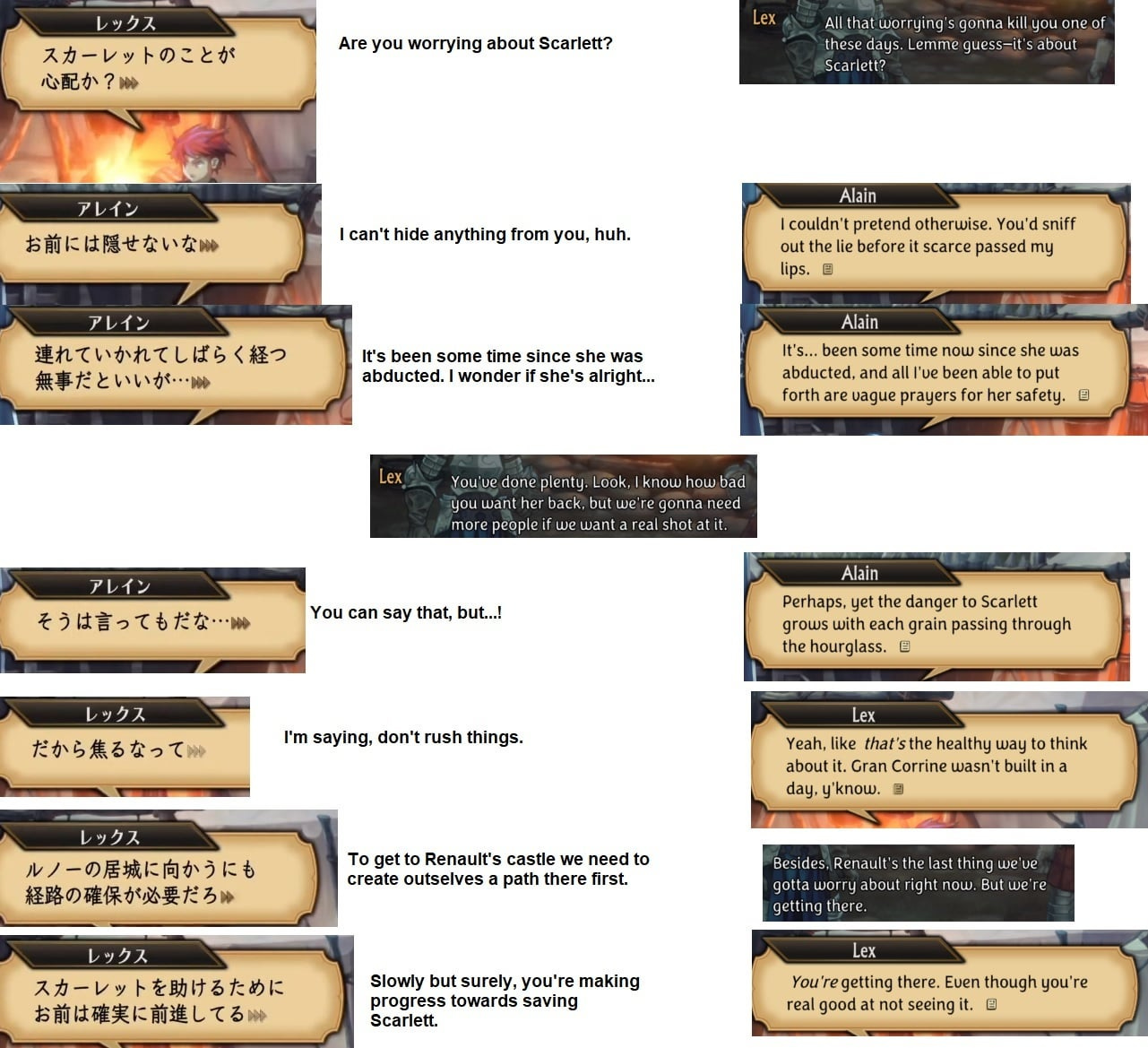The venerable and beloved Vanillaware just released a brand-new fantasy tactics RPG in their characteristic painted anime aesthetic and it has what is possibly the best name in the history of anything, ever: UNICORN OVERLORD. The gameplay and art are top-notch and perhaps the best the company has ever produced.
But I haven’t bought the game.
The reason: the translation.
Or rather, “localization,” but that word is not robust enough to describe what John Riesenbach and his company 8-4 has done to what should have been the biggest breakout of the TRPG genre.
What they actually did is replace the script of the original game with original writing using a pseudo-early-modern dialect as if they were playing mad libs. This authoring of story elements, which seem to run through the entire game (though I have just played the free demo), is an issue not because they are inserting piles of woke propaganda (like with most controversial translations). It is significant because they are writing dialogue that is so utterly terrible. It’s so bad it makes me wonder if they speak English at all or have ever read a book written before 1980.
Just look at some of these lines exposed just a few weeks ago on reddit:


Egad! It’s like epic fantasy I would have attempted in the 9th grade after reading half the Silmarillion, ten pages of Ivanhoe, and sleeping through Macbeth.
The choice of this style is baffling considering that the Japanese original is written in a straightforward Japanese vernacular. There is no indication that the characters ought to speak in an archaic manner, and even if they did, the writers for 8-4 (should there even be any writers?) clearly do not have the chops to pull it off. It occurs to me that, being novices, it is totally possible that they are oblivious to how bad everything they have written sounds. This is a blind spot that is unfortunately present in most developing writers, and it goes away with feedback and experience. The localizers must have a serious lack in both.
There is a lesson here about writing, too. Writing is a communicative medium, meaning that there is (presumably) another person who you are trying to give information too. Simple prose and clear dialogue are preferable not just because you are less likely to bork them up, but also because its easier to communicate the essentials of the story (the setting, characters, and plot) using them verses purple prose and complex dialogue.
So, what we have here is an unfortunate situation: what looks to be a good game with a major portion of it (the story) significantly harmed by ineptitude at the finish. Vanillaware blew the bank on this game and has a history of making games that look and play incredibly well, but that one small business decision (which might have been the fault of Atlus or Sega, the publishers), may have major repercussions. If a fan buys the game, does that send the signal that 8-4 should get more work?
Unfortunately, you are looking at a joint product at this point, which means the parts can’t be separated out. You can’t pay Vanillaware and NOT pay 8-4 except in a very roundabout way, like buying the Japanese version from Japan and using a fan guide or gaining a reading knowledge of Japanese yourself. Even then, 8-4 already got paid, and I doubt they have any further responsibility for their work. They have no skin in the game, whereas the developers do have skin in the game, since they made the game and went into debt to ship it. The reaction of 8-4 is telling; John Riesenbach went private and hid replies pointing out the shoddy work on the game after announcing how proud he was of his work. Perhaps he should have been ashamed.
There is also no hope for a fan fix, either, as Vanillaware does not publish PC games which can be easily modded like some RPGs of the past. We’re stuck with art that is either vandalized or ruined by amateurs. And that’s the big point, reinforcing what I’ve said in the past. This is the work of a developing writer, not a pro. I’m willing to accept the need for writing chops to “idiomatize” a translation, to make the dialogue feel like native speaking, but there are limits.
Even if you wanted to be a writer through a translation gig, have you done the work? Author and editor Brian Niemeier says you have to write about a million words to get the suck out. I’m, inclined to agree; maybe with dedication and great feedback it’s half a million words, but a novice has no idea how much writing that is. Do you think these folks have done the reps? It doesn’t seem like it to me, but I’d love to have some of your thoughts on it. Should we buy the product anyway because of Vanillaware, or refuse because of the translation?
You tell me.
I am an independent artist and musician. You can get my books (including current works) by joining my Patreon or Ko-Fi, and you can listen to my current music on YouTube or buy my albums at BandCamp.





I won’t disagree with your point about the quality of the localization but I will say that I am 50 hours into this and I am pretty sure this is my favorite SRPG ever (going back to Ogre Battle in the 90s as a point of reference). The systems, gameplay and art direction are just so strong in this one I feel like it’s worth trudging through the poor localization. If I remember correctly this was sort of the case also with Final Fantasy Tactics, which I still think is great despite the dodgy localization and the whole “evil church” trope.